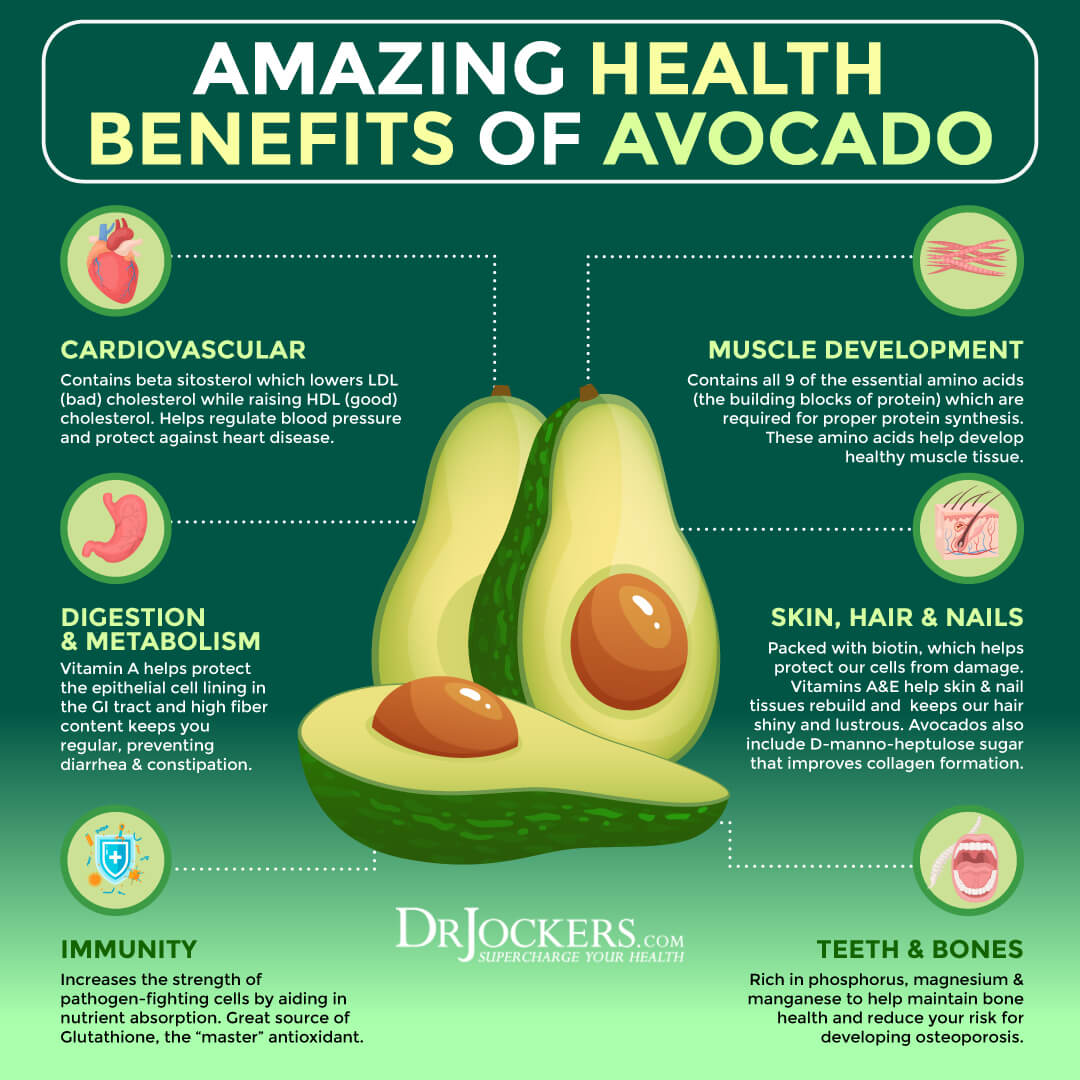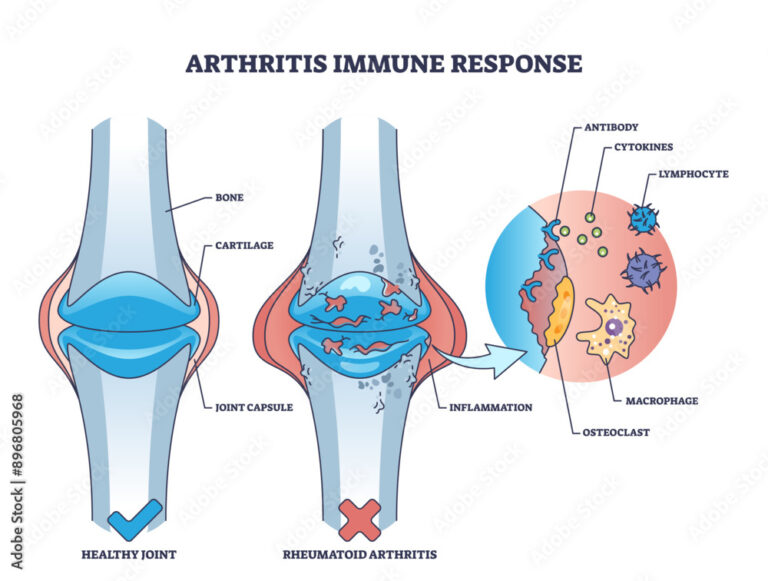Beyond Guacamole: Unpacking the Heart-Healthy Fats in Avocado
The avocado. For many, the word conjures images of vibrant green guacamole, the creamy centerpiece of countless gatherings. It’s a fruit, yes, but one that has long straddled the line between culinary delight and nutritional enigma, often scrutinized for its high fat content in an era that demonized dietary fats. Yet, beneath its often-bumpy, leathery skin lies a treasure trove of nutrients, particularly fats, that science has increasingly championed as profoundly beneficial for cardiovascular health. This isn’t just about a tasty dip; it’s about a sophisticated biological package, a testament to nature’s intricate design, whose fats tell a compelling story of wellness that extends far "beyond guacamole."
To truly appreciate the avocado, we must peel back the layers – both literal and metaphorical – and delve into the intricate biochemistry that transforms this humble fruit into a heart-health powerhouse. For the knowledgeable audience, this journey will not merely confirm what you suspect but will illuminate the precise mechanisms, the synergistic compounds, and the robust scientific evidence that elevate the avocado from a mere ingredient to a nutritional cornerstone.
A Journey Through Time: From Mesoamerican Staple to Global Phenomenon
Our story begins not in a modern supermarket, but thousands of years ago in south-central Mexico. The avocado, or āhuacatl in Nahuatl, the language of the Aztec, was not just food; it was a symbol of fertility and a vital part of the Mesoamerican diet, cultivated as early as 5000 BC. The Spanish conquistadors, upon encountering this peculiar "alligator pear" – a descriptor reflecting its rough skin and pear-like shape – brought it back to Europe, though its widespread cultivation outside its native lands was slow. For centuries, it remained an exotic curiosity, a niche delicacy.
It wasn’t until the 20th century that the avocado began its ascent to global stardom. Early perceptions were often mixed; its creamy texture and mild flavor were appealing, but its high fat content raised eyebrows in an era increasingly wary of dietary fats. The prevailing nutritional dogma, particularly from the mid-20th century onwards, often painted all fats with a broad, negative brushstroke, linking them indiscriminately to heart disease and obesity. This created an initial hurdle for the avocado, forcing it to fight against a tide of misinformation.
Yet, as scientific understanding evolved, particularly regarding the nuanced roles of different types of fats, the avocado began to shed its controversial image. Researchers started to distinguish between saturated, trans, polyunsaturated, and monounsaturated fats, and it was in this differentiation that the avocado truly found its stride. Its predominant fat, a monounsaturated fatty acid (MUFA) known as oleic acid, started to emerge as a hero, not a villain. The narrative shifted from "high-fat" to "rich in healthy fats," propelling the avocado from an exotic fruit to a celebrated superfood, a testament to the enduring power of scientific discovery to reshape our understanding of diet and health.
The Macronutrient Matrix: Beyond Just Fats
While the fats are our primary focus, it’s crucial to understand that the avocado is a holistic nutritional package. Before we dive deep into its lipid profile, let’s briefly acknowledge its other significant contributions, which often work in concert with its fats to amplify health benefits.
A typical medium avocado (around 200 grams) boasts:
- Calories: Approximately 320, predominantly from fat.
- Carbohydrates: Around 17 grams, with a remarkable 13.5 grams being dietary fiber. This high fiber content, both soluble and insoluble, is crucial for digestive health, satiety, and blood sugar regulation.
- Protein: A modest 4 grams.
- Vitamins: An impressive array, including Vitamin K (26% DV), Vitamin C (17% DV), Vitamin B6 (13% DV), Vitamin E (10% DV), Folate (20% DV), and Pantothenic Acid (14% DV). These fat-soluble vitamins, particularly E and K, are especially well-absorbed due to the avocado’s inherent fat content.
- Minerals: Abundant in Potassium (28% DV), which often surpasses that found in a banana, and also contains significant amounts of Copper and Magnesium.
This rich nutrient profile ensures that avocado isn’t just a vehicle for healthy fats but a comprehensive contributor to overall well-being. However, it is the lipid landscape that truly sets it apart and forms the core of its heart-healthy reputation.
The Star Player: Monounsaturated Fatty Acids (MUFAs) – Oleic Acid Takes Center Stage
At the heart of the avocado’s health benefits lies its extraordinary fat composition. Unlike many plant-based foods, avocado is predominantly fat by calorie. But critically, the vast majority of this fat – roughly 70-80% – is in the form of monounsaturated fatty acids (MUFAs), with oleic acid being the most abundant.
What are MUFAs? A Chemical Perspective
For the knowledgeable reader, a quick dive into the chemistry clarifies their unique role. Fatty acids are long chains of carbon atoms. Saturated fatty acids have no double bonds between their carbon atoms, meaning they are "saturated" with hydrogen atoms. This makes them relatively rigid and solid at room temperature. Polyunsaturated fatty acids (PUFAs) have two or more double bonds, making them more flexible. MUFAs, as their name suggests ("mono" meaning one), possess a single double bond in their carbon chain. This single double bond introduces a kink in the otherwise straight chain, affecting their physical properties (they are liquid at room temperature but solidify when chilled) and, more importantly, their biological activity within the body.
Oleic Acid: The Avocado’s Heartbeat
Oleic acid (cis-9-octadecenoic acid) is the specific MUFA that dominates the avocado’s fat profile. It is the same beneficial fatty acid found in high concentrations in olive oil, a cornerstone of the Mediterranean diet, long celebrated for its cardiovascular benefits. This shared characteristic immediately places avocado in esteemed company. But how exactly does oleic acid, and MUFAs in general, exert their profound heart-protective effects? The mechanisms are multifaceted and increasingly well-understood.
1. Cholesterol Regulation: A Symphony of Lipid Management
One of the most well-established benefits of MUFAs is their positive impact on blood lipid profiles, particularly cholesterol.
- Lowering LDL ("Bad") Cholesterol: MUFAs, when substituted for saturated or trans fats in the diet, are highly effective at reducing levels of low-density lipoprotein (LDL) cholesterol. LDL particles are responsible for transporting cholesterol from the liver to cells, and elevated levels, especially of small, dense LDL particles, are a primary risk factor for atherosclerosis – the hardening and narrowing of arteries. Oleic acid achieves this by:
- Upregulation of LDL Receptors: It increases the number and activity of LDL receptors on liver cells. These receptors act like cellular vacuum cleaners, binding to and clearing LDL particles from the bloodstream, thus reducing circulating levels.
- Inhibition of de novo Cholesterol Synthesis: While not as potent as pharmaceutical statins, MUFAs can subtly influence the activity of enzymes involved in cholesterol synthesis within the liver, such as HMG-CoA reductase, thereby contributing to a reduction in endogenous cholesterol production.
- Maintaining/Raising HDL ("Good") Cholesterol: Unlike many dietary interventions that lower LDL but also inadvertently reduce high-density lipoprotein (HDL) cholesterol, MUFAs demonstrate a unique ability to lower LDL while either maintaining or even slightly increasing HDL levels. HDL is crucial for "reverse cholesterol transport," where it collects excess cholesterol from peripheral tissues and transports it back to the liver for excretion, thus preventing plaque buildup. The precise mechanism for HDL elevation is complex but involves influencing the synthesis and catabolism of HDL particles and their associated apolipoproteins (e.g., ApoA-I).
- Impact on VLDL and Triglycerides: MUFAs can also help reduce levels of very low-density lipoprotein (VLDL) and triglycerides, particularly in individuals with hypertriglyceridemia. VLDL particles are the primary transporters of triglycerides, and elevated levels are another independent risk factor for cardiovascular disease.
The net effect is a significantly improved lipid profile, shifting the balance away from pro-atherogenic particles and towards a healthier cardiovascular state.
2. Anti-inflammatory Properties: Quenching the Flames Within
Chronic low-grade inflammation is increasingly recognized as a key driver in the initiation and progression of atherosclerosis and numerous other chronic diseases. The fats in avocado, particularly oleic acid, exhibit significant anti-inflammatory effects.
- Reduction of Inflammatory Markers: Studies have shown that diets rich in MUFAs can reduce circulating levels of systemic inflammatory markers such as C-reactive protein (CRP), interleukin-6 (IL-6), and tumor necrosis factor-alpha (TNF-α). These markers are indicators of underlying inflammation and are predictive of cardiovascular events.
- Modulation of Gene Expression: Oleic acid can influence gene expression related to inflammatory pathways. It can downregulate the expression of pro-inflammatory genes and upregulate anti-inflammatory genes, thereby exerting a protective effect at a cellular level.
- Endothelial Function: Inflammation often compromises endothelial function – the health of the inner lining of blood vessels. MUFAs help maintain the integrity and functionality of the endothelium, promoting vasodilation (widening of blood vessels) and reducing the adhesion of inflammatory cells and lipids to the arterial wall, which are critical early steps in atherosclerosis.
By actively combating inflammation, avocado fats contribute to a healthier vascular system, reducing the risk of plaque formation and rupture.
3. Insulin Sensitivity and Glycemic Control: A Metabolic Advantage
Beyond cholesterol and inflammation, avocado’s MUFAs play a crucial role in metabolic health, particularly in improving insulin sensitivity and aiding in glycemic control. This is vital for preventing and managing metabolic syndrome and type 2 diabetes, both of which are major risk factors for heart disease.
- Improved Insulin Signaling: MUFAs can enhance the sensitivity of cells to insulin. Insulin resistance, where cells fail to respond effectively to insulin, leads to elevated blood glucose levels and forces the pancreas to produce more insulin, a state known as hyperinsulinemia. By improving insulin sensitivity, MUFAs help cells absorb glucose more efficiently, reducing blood sugar levels and the burden on the pancreas.
- Slowed Carbohydrate Absorption: When consumed with carbohydrate-rich meals, the fats in avocado can slow gastric emptying, meaning food stays in the stomach longer. This leads to a more gradual release of glucose into the bloodstream, preventing sharp spikes in blood sugar and insulin, which is particularly beneficial for individuals with diabetes or pre-diabetes.
- Satiety and Weight Management: The combination of healthy fats and fiber in avocado contributes significantly to satiety, the feeling of fullness. This can help reduce overall caloric intake, assist with weight management, and prevent overeating, which is a key strategy for improving insulin sensitivity and reducing cardiovascular risk.
4. Antioxidant Effects (Indirect & Synergistic)
While MUFAs themselves are not primary antioxidants in the same way as vitamins C or E, their role in cell membrane structure and synergy with other fat-soluble antioxidants is significant. They contribute to the fluidity and integrity of cell membranes, making them less susceptible to oxidative damage. Furthermore, the presence of MUFAs greatly enhances the absorption of fat-soluble antioxidants like carotenoids and Vitamin E found within the avocado itself, amplifying their protective effects against oxidative stress, another key contributor to cardiovascular disease.
Beyond Oleic Acid: The Supporting Cast of Bioactive Compounds
The heart-healthy narrative of avocado extends beyond its impressive MUFA content. It’s a symphony of bioactive compounds working in concert, each playing a vital role in reinforcing cardiovascular wellness.
1. Phytosterols: Nature’s Cholesterol Blockers
Avocado is notably rich in phytosterols, plant compounds structurally similar to cholesterol. The most abundant phytosterol in avocado is beta-sitosterol.
- Mechanism of Action: Phytosterols compete with dietary cholesterol for absorption in the gut. Because their structure is so similar, they effectively block cholesterol from being absorbed into the bloodstream, leading to increased excretion of cholesterol in the feces. This mechanism provides an additive cholesterol-lowering effect, complementing the actions of MUFAs. Studies have shown that consuming foods rich in phytosterols can significantly reduce LDL cholesterol levels.
2. Carotenoids: Vision, Vessels, and Vitality
Avocado contains a variety of fat-soluble carotenoids, particularly lutein and zeaxanthin.
- Enhanced Absorption: Crucially, the rich fat content of avocado itself significantly enhances the bioavailability and absorption of these carotenoids. Without sufficient fat, the absorption of these beneficial compounds from other foods is often poor.
- Antioxidant and Anti-inflammatory: Lutein and zeaxanthin are powerful antioxidants, protecting cells from oxidative damage. While best known for their role in eye health (reducing the risk of age-related macular degeneration), they also exert systemic antioxidant and anti-inflammatory effects that contribute to vascular health, preventing oxidative modification of LDL particles, a critical step in atherosclerosis.
3. Tocopherols (Vitamin E): The Membrane Protector
Avocado is a good source of Vitamin E, specifically alpha-tocopherol.
- Lipid-Soluble Antioxidant: Vitamin E is a potent lipid-soluble antioxidant that embeds itself within cell membranes, protecting fatty acids from peroxidation (oxidative damage). This is particularly important for LDL particles, as oxidized LDL is far more atherogenic than non-oxidized LDL.
- Synergy with MUFAs: The combination of Vitamin E and MUFAs in avocado creates a powerful protective synergy, maintaining the integrity of cell membranes and lipoproteins, and preventing the oxidative stress that contributes to cardiovascular disease.
4. Dietary Fiber: The Gut-Heart Connection
As mentioned, avocado is exceptionally high in fiber. Both soluble and insoluble fibers contribute to heart health.
- Soluble Fiber: This type of fiber forms a gel-like substance in the digestive tract. It binds to bile acids (which are made from cholesterol) and carries them out of the body, forcing the liver to draw more cholesterol from the bloodstream to produce new bile acids, thereby lowering LDL cholesterol. It also acts as a prebiotic, feeding beneficial gut bacteria.
- Insoluble Fiber: Adds bulk to stool, promoting regular bowel movements and overall digestive health. A healthy gut microbiome, influenced by fiber intake, is increasingly recognized as a crucial factor in cardiovascular health, influencing inflammation, lipid metabolism, and blood pressure.
- Satiety: The high fiber content, combined with fats, significantly boosts satiety, aiding in weight management – a critical factor in reducing cardiovascular risk.
5. Potassium: The Blood Pressure Regulator
Avocado is an excellent source of potassium, often containing more per serving than a banana.
- Counteracting Sodium: Potassium plays a vital role in balancing sodium levels in the body. A diet high in sodium and low in potassium can lead to hypertension (high blood pressure), a major risk factor for heart disease and stroke. Potassium helps relax blood vessel walls, reducing blood pressure.
- Electrolyte Balance: It is essential for maintaining proper fluid balance and nerve signals, supporting overall cardiovascular function.
Scientific Evidence: A Weight of Proof
The benefits of avocado’s heart-healthy fats are not theoretical; they are backed by a growing body of robust scientific evidence, ranging from observational studies to randomized controlled trials.
- Cholesterol Studies: Numerous human intervention trials have consistently demonstrated the ability of avocado consumption to significantly reduce total cholesterol and LDL cholesterol levels, particularly in individuals with hypercholesterolemia. For example, studies have shown that incorporating one avocado per day into a moderate-fat diet can lead to a more favorable lipid profile compared to a diet without avocado, even when calorie intake is matched.
- Metabolic Syndrome: Research indicates that regular avocado consumption can improve markers associated with metabolic syndrome, including waist circumference, blood pressure, fasting glucose, triglycerides, and HDL cholesterol.
- Inflammation Markers: Studies have observed reductions in inflammatory markers like CRP following diets rich in avocado, further solidifying its anti-inflammatory credentials.
- The PERSEA Study: This significant randomized controlled trial, published in the Journal of the American Heart Association, demonstrated that daily avocado consumption improved cardiovascular risk factors, including reducing oxidized LDL (a particularly damaging form of LDL) and increasing lutein levels, without promoting weight gain.
- Dietary Patterns: Beyond isolated studies, avocado fits seamlessly into dietary patterns known for their cardiovascular benefits, such as the Mediterranean diet and the DASH (Dietary Approaches to Stop Hypertension) diet. Its inclusion in these patterns reinforces its role as a key contributor to heart health.
- Meta-Analyses: Comprehensive meta-analyses pooling data from multiple studies have consistently affirmed the positive impact of avocado on lipid profiles and other cardiovascular risk factors, providing strong evidence for its inclusion in heart-healthy dietary guidelines.
This wealth of evidence moves avocado far beyond anecdotal claims, firmly establishing it as a scientifically validated ally in the fight against heart disease.
Avocado in the Context of a Holistic Diet: A Nutrient-Dense Choice
It is important to view avocado not as a magic bullet but as a supremely valuable component within a broader, balanced dietary pattern. Its high calorie density, primarily from its beneficial fats, means that while it is incredibly nutrient-dense, portion control remains a consideration within an overall caloric budget, especially for those managing weight.
The key to maximizing avocado’s benefits lies in the principle of substitution. Replacing sources of unhealthy saturated and trans fats (e.g., butter, processed snack foods, fatty meats) with avocado’s monounsaturated fats is where its true power shines. Instead of using mayonnaise on a sandwich, opt for mashed avocado. Swap out creamy, high-saturated-fat dressings for an avocado-based vinaigrette. This strategic replacement allows for a significant improvement in dietary fat quality without necessarily increasing total fat intake, or if total fat intake increases slightly, it is with fats that actively promote health.
Furthermore, avocado’s fats enhance the absorption of fat-soluble vitamins and antioxidants from other healthy foods consumed alongside it. Pairing avocado with a colorful salad, for instance, significantly boosts the bioavailability of carotenoids from carrots, spinach, and tomatoes. This synergistic effect underscores its role as a valuable complement to a vibrant, plant-rich diet.
Practical Applications and Culinary Versatility
The beauty of avocado, beyond its scientific credentials, lies in its remarkable culinary versatility. "Beyond guacamole" truly means beyond guacamole, though a well-made guacamole remains an undeniably delicious and healthy option.
- Breakfast: Slice onto whole-wheat toast with a sprinkle of everything bagel seasoning; blend into a smoothie for creaminess and satiety; scramble with eggs for added nutrients.
- Lunch: Add to salads for a boost of healthy fats and fiber; mash into a sandwich spread instead of processed condiments; dice into a hearty grain bowl.
- Dinner: Fan slices over grilled fish or chicken; incorporate into pasta sauces for a creamy, dairy-free alternative; use as a base for healthy, raw desserts.
- Snacks: Enjoy plain with a pinch of salt and pepper; blend with herbs and spices for a quick dip with crudités.
Its neutral, creamy texture allows it to adapt to both savory and sweet applications, making it easy to incorporate into almost any meal, debunking the myth that it’s difficult to integrate into a diverse diet.
Conclusion: The Enduring Legacy of the "Alligator Pear"
From its ancient origins as a revered Mesoamerican fruit to its current status as a global superfood, the avocado’s journey is a compelling narrative of evolving scientific understanding. Once viewed with suspicion due to its fat content, it has emerged as a shining example of how specific types of dietary fats, far from being detrimental, are fundamental to human health.
The story of the avocado is ultimately a story of its heart-healthy fats: the dominant monounsaturated oleic acid, meticulously working to optimize cholesterol levels, quell inflammation, and enhance insulin sensitivity. But it is also the story of a supporting cast – phytosterols blocking cholesterol absorption, carotenoids providing antioxidant defense, Vitamin E protecting cellular integrity, fiber nurturing gut health, and potassium regulating blood pressure. Together, these compounds create a powerful synergy that positions the avocado as a genuine cornerstone of cardiovascular wellness.
So, the next time you encounter an avocado, whether in a vibrant guacamole or simply sliced on your plate, remember that you are engaging with a fruit whose intricate biochemical design has been refined over millennia. It’s a profound reminder that nature’s bounty often holds the most sophisticated solutions for our health, inviting us to look "beyond guacamole" and truly unpack the enduring, heart-healthy legacy of the remarkable alligator pear.







